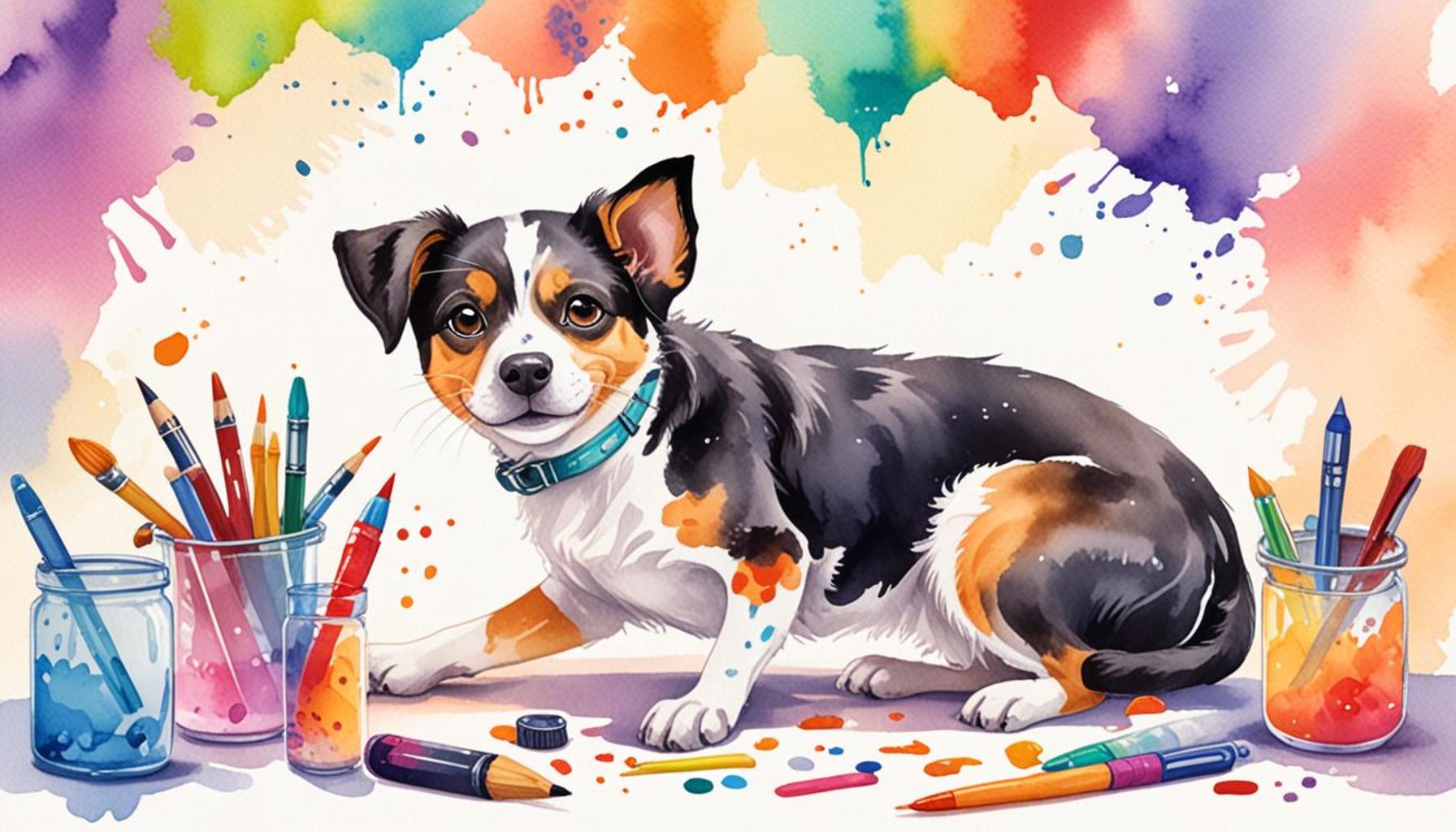The Benefits of Socialization Training for Puppies and Adult Dogs

The Importance of Socialization Training for Dogs
Socialization training is a fundamental component of raising a well-adjusted dog. It encompasses exposing dogs to new places, people, animals, and experiences, providing them with the tools they need to navigate the world confidently. Regardless of whether you have an energetic puppy or a seasoned adult dog, socialization is essential in molding their behavior and ensuring they integrate smoothly into various settings.
Key Benefits of Socialization Training
Understanding the impact of effective socialization can significantly alter how pet owners approach their dogs’ training. Below are some of the critical benefits:
- Improved Behavior: Dogs that undergo thorough socialization training are typically more manageable and exhibit fewer aggressive or fearful behaviors in unfamiliar situations. For example, a socialized dog is less likely to react negatively to strangers, which not only makes walks more pleasant but also helps prevent potential incidents.
- Enhanced Confidence: Structured interactions with a variety of people and other dogs foster self-assurance in pets. Regularly introducing your dog to different environments, such as bustling streets, dog parks, and busy shops, can create a well-rounded companion who thrives in diverse settings.
- Stronger Bonds: Engaging in socialization activities can deepen the emotional connection between dogs and their owners. For instance, attending training classes or playdates allows for shared experiences that reinforce trust and understanding.
Despite these benefits, many pet owners underestimate the urgency of socialization training, particularly for adult dogs who may have developed negative behaviors due to lack of exposure. This negligence can lead to issues that not only complicate the dog’s life but also create stress for their owners. Proactively investing time in structured socialization programs can yield lifelong rewards, cultivating well-mannered companions and enriching the shared experience.
Diverse Needs Across Dog Breeds
The United States boasts a rich tapestry of dog breeds, each possessing distinct temperaments and social needs. For instance, herding breeds like Border Collies may require more vigorous interaction and stimulation, while toy breeds such as Chihuahuas might thrive in more controlled environments. By recognizing these individual needs, owners can customize their socialization efforts, ultimately fostering a happy and well-adjusted canine companion.
Techniques for Effective Socialization Training
As we further explore the realm of socialization training, we’ll unveil a variety of techniques and strategies that can enhance your dog’s social skills. From structured playgroups to puppy classes and neighborhood walks, there are numerous ways to engage your dog in socialization. Furthermore, employing positive reinforcement methods during these encounters can lead to optimal outcomes. Get ready to learn how simple, actionable steps can lead to a happier and healthier dog.

DISCOVER MORE: Click here to learn effective training techniques
Unlocking Social Potential: Effective Techniques for Dogs
When it comes to enhancing your dog’s social skills, employing the right socialization training techniques is pivotal. Whether you have a curious puppy taking their first steps into the world or a mature dog unaccustomed to social settings, tailored training approaches can unlock unique opportunities for growth and interaction. Below are several methods that can prove beneficial for dogs of all ages.
Structured Playgroups
One of the most effective methods for socialization training is participation in structured playgroups. These controlled environments allow dogs to interact with various breeds and temperaments under the supervision of a trained professional. This setting not only fosters playful engagement but also provides an opportunity to teach fundamental skills such as sharing, listening, and respecting boundaries. Puppy playgroups can particularly introduce young dogs to appropriate behaviors in a safe setting, setting the stage for future social interactions.
Puppy Classes and Obedience Training
Puppy classes are indispensable for early socialization and good manners. These classes typically incorporate training exercises alongside the opportunity to meet other puppies, making them an ideal setting for social growth. Adult dogs can benefit from similar obedience training classes, where they learn authority and basic commands while interacting with both trainers and fellow canines. Enrolling your dog in such classes not only sharpens their skills but also establishes routine social interactions, making them more comfortable and confident.
Exploring New Environments
Another fantastic way to enhance a dog’s socialization is through exploration of new environments. Regular outings to bustling areas, parks filled with people, or even pet-friendly stores provide valuable exposure to different sights, sounds, and smells. These excursions encourage a dog to adapt to various stimuli that they may encounter in a typical day. Incorporating neighborhood walks into your routine can also expose your dog to familiar faces while making introductions to outside influences easier and less intimidating.
Positive Reinforcement
Positive reinforcement plays an essential role in socialization training. Rewarding your dog with treats, praise, or play when they exhibit desired behaviors can help reinforce their confidence in social situations. This approach not only encourages good behavior but also strengthens the bond between the dog and owner, creating a sense of trust that enhances future interactions. By celebrating small victories, both owners and dogs can experience the joy of progress together.
In summary, embracing comprehensive socialization training through these methods contributes significantly to a dog’s well-being. Engaging in structured playgroups, attending classes, exploring new environments, and utilizing positive reinforcement can lay a solid foundation for your dog’s social skills. As we delve deeper into this topic in the following sections, portable ideas and best practices will emerge, allowing you to embark on an enlightening journey toward a happier, healthier, and more sociable companion.
The journey towards a well-behaved dog often begins with socialization training, an essential process that should not be overlooked. This training is not limited to puppies; adult dogs can also greatly benefit from it. Let’s look at some of the remarkable advantages of socialization training that encourage pet owners to invest time and effort into this crucial aspect of dog care.
| Category | Benefits |
|---|---|
| Enhanced Behavior | Socialization helps dogs learn appropriate behaviors in various environments, reducing issues like aggression and fear. |
| Emotional Well-being | A well-socialized dog experiences less anxiety and stress, leading to a more balanced and happy life. |
| Improved Communication | Training encourages dogs to express themselves clearly and understand social cues from other dogs and humans. |
| Strengthened Bond | Socialization fosters trust between you and your dog, enhancing your relationship and ensuring a more enjoyable companionship. |
By focusing on socialization training, pet owners can ensure a lifetime of benefits for their furry companions. The impact of such training resonates well beyond basic obedience, paving the way for a harmonious coexistence within various settings.
DIVE DEEPER: Click here to discover how interactive toys can strengthen your bond with your pet
Fur-thering Social Skills: Advanced Techniques and Approaches
As we navigate the intricacies of socialization training for dogs, it’s crucial to explore advanced techniques that can refine their social skills even further. Building on the foundational practices, these methods aim to enhance your dog’s adaptability and confidence in a variety of settings. Here, we delve into more sophisticated approaches that make socialization training a continuous and enjoyable process for both dogs and owners alike.
Controlled Socialization Events
Engaging in controlled socialization events is an excellent strategy for fostering positive interactions. These events can include organized outings to dog parks, community fairs, or charity events where dogs are expected to mingle. What sets these gatherings apart is the element of control; owners can lead their dogs into small groups or one-on-one encounters with handlers present to manage the interactions. This method allows dogs to learn social cues and proper etiquette while feeling secure due to the presence of their trusted owners.
Desensitization Techniques
Many dogs react negatively to specific stimuli, such as loud noises, unfamiliar people, or other animals. Desensitization techniques involve gradually exposing dogs to these triggers in a controlled manner. For example, if a dog is fearful of bicycles, starting with a distance at which the dog remains calm and rewarding them for good behavior can create a positive association. Over time, you can decrease the distance to help the dog build confidence, ultimately reducing its fear response. This practice not only aids in overcoming anxieties but also provides essential life skills that enhance social interactions.
Interaction with Different Ages and Breeds
It’s vital for dogs to interact with canines of varying ages and breeds. Each type of dog presents new playing styles and temperamental differences. By facilitating exposure to diverse companions, you enable your dog to adapt better to social situations. This can include setting up play dates with friends’ dogs or visiting doggy daycare facilities that emphasize mixed breed interactions. The diverse range of social contacts boosts your dog’s adaptability, making them more resilient and less prone to aggression or anxiety around unfamiliar dogs.
Utilizing Technology for Socialization
In today’s digital age, technology offers innovative ways to enhance socialization training. There are various mobile applications and online communities dedicated to pet owners. For example, social media groups allow owners to connect with nearby dog owners, facilitating group meet-ups and training sessions. Moreover, virtual training workshops can guide owners in best practices for socializing their dogs, regardless of geographical constraints. Embracing these resources can enrich a dog’s social experience and open up new channels for interaction.
Monitoring Behavioral Changes
Throughout the socialization journey, it’s essential for owners to monitor their dog’s behavioral changes. Keeping a socialization journal documenting interactions helps identify triggers, successful encounters, and any emerging challenges. This log not only helps in tracking progress but also makes it easier to adjust training techniques based on what works best for your individual dog. Assessment and adaptation are key to developing a solid socialization strategy that sets your dog up for success.
Incorporating these advanced techniques into your dog’s socialization training can significantly enhance their quality of life. By embracing control in social settings, utilizing desensitization, encouraging interactions with diverse companions, leveraging technology, and closely monitoring behavior, you pave the way for a well-socialized, balanced, and joyful canine companion. These proactive measures can elevate the dog-owner relationship while promoting a secure and confident dog ready to take on the world.
DISCOVER MORE: Click here to learn how interactive toys can strengthen your bond with your pet
Conclusion: Embracing Socialization for a Brighter Future
In summary, the journey of socialization training for puppies and adult dogs is an invaluable investment in their well-being and happiness. The benefits extend far beyond mere obedience; they encompass a dog’s ability to navigate the complexities of various social environments with confidence and ease. From improved behavior to enhanced adaptability, the positive outcomes of effective socialization training are profound.
As we have explored, advanced techniques such as controlled socialization events, desensitization strategies, and interaction with dogs of different ages and breeds are essential tools in the modern dog owner’s toolkit. Additionally, leveraging technology through online communities and resources offers innovative ways to facilitate learning and engagement. This holistic approach not only prepares dogs for the challenges of daily life but also creates a strong bond between pets and their owners, enhancing overall companionship.
Monitoring behavioral changes through a socialization journal serves as an effective way to assess progress and tailor training methods, ensuring that each dog receives the individualized attention they deserve. As dog owners, committing to this process underscores the importance of fostering positive experiences and helping our canine companions thrive in a chaotic world.
Ultimately, investing in socialization training is an act of love and responsibility. A well-socialized dog is not only a joy to have around but is also better equipped to contribute to a harmonious community. By prioritizing socialization, we pave the way for confident, adaptive dogs that enrich our lives and the lives of those they encounter.


